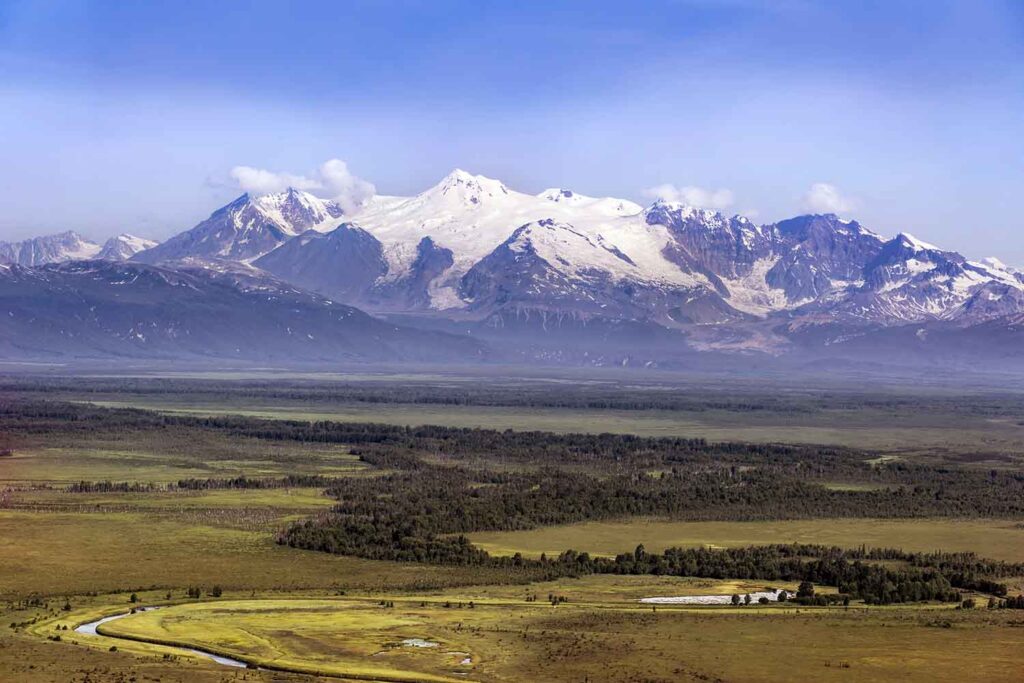
Many electric cooperatives prepare as best they can for hurricanes, tornadoes and winter storms, but Chugach Electric Association Inc. in Anchorage, Alaska, is bracing for a much rarer disaster: a volcanic eruption.
Scientists in the state announced in mid-March that Mount Spurr—the volcano closest to Anchorage—is likely to erupt in the next few weeks or months.
The potential impact on Chugach and its 92,000-plus members depends in large part on how much ash falls on the co-op’s service territory and how long the ash continues to rain down, said Julie Hasquet, senior manager of corporate communications at the co-op, which is the biggest electric utility in Alaska.
“We know that we may have to shut down our power plants with combustion turbines, which are similar to the engines used by the aviation industry in that they are very susceptible to ash,” Hasquet said.
“We do have other sources of generation if that happens, including older generation that isn’t quite so sensitive, our hydro resources, and some wind. Our generation plants are spread out geographically, so they may not all be impacted by an ash cloud at the same time, if at all.”
Power outages are possible but not inevitable.
“Significant ash buildup on conductors under very specific conditions could cause flashovers that result in outages,” Hasquet said. “That has happened in previous eruptions.”
Mount Spurr erupted in 1992 and caused some outages, but no major damage, Hasquet said. The 2009 eruption of another volcano, Mount Redoubt, had no impacts on the co-op’s system.
“If Mount Spurr does erupt, it’s possible the wind direction will move it away from Anchorage and there will be no impact here,” she said. “We really won’t know unless and until there is an eruption. We are continually monitoring the Alaska Volcano Observatory and the daily updates.”
Chugach has activated its Incident Management Team, which is meeting regularly to plan for a possible eruption, said Hasquet, who serves on the team.
“We know that an eruption may never come, but we want to be ready if it happens,” she said.
The co-op is encouraging its members to prepare for an eruption just like they would for any other emergency.
“Have your emergency supplies together, have a plan for your family and how you will communicate, make provisions to take care of pets,” Hasquet said. “Basically, be ready for power outages or other disruptions that a volcanic eruption could cause.”
State officials are warning the public that heavy ashfall can reduce visibility, cause breathing problems and damage car and truck engines.
“If there is significant ashfall in Anchorage, we will limit any travel by our employees,” Hasquet said. “We expect active ashfall to be limited, however, and would not anticipate it lasting several days. Generally, when a volcano erupts, and if ash comes to Anchorage, the worst of it is over rather quickly.”
If there are power outages, she said, the co-op will take safety precautions to protect line crews.
“We would not send them out in a thick ash cloud but would wait until it subsided to a degree. They would wear personal protective equipment, including masks, goggles and gloves. Any driving would only be what is absolutely necessary.”
“The good news,” Hasquet added, “is we are making plans and, if the time comes, our priorities will be personnel safety, public safety and keeping the power on.”
Erin Kelly is a staff writer for NRECA.